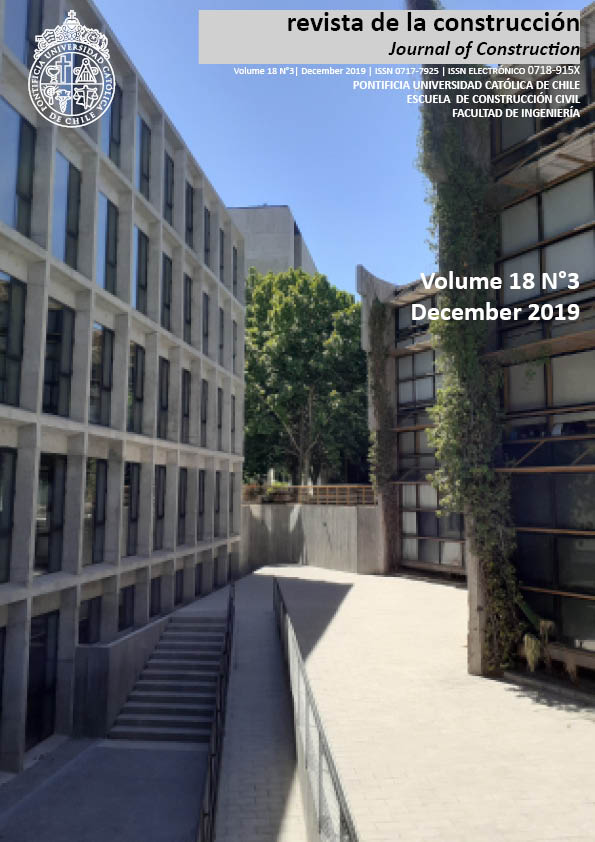Time-cost optimization model proposal for construction projects with genetic algorithm and fuzzy logic approach
DOI:
https://doi.org/10.7764/RDLC.18.3.554Keywords:
construction project, time-cost optimization, genetic algorithm, fuzzy logicAbstract
Considering the construction industry holds ten percent on average in the gross national product over the world, the importance of efficient use of resources emerges. To alleviate the possibility of the risk factors and various uncertainties' negative impact on the project, the usage of the scheduling tools should be supported for planning as well as risk management. In today's construction perspective, the quality is not a primary objective; construction projects have to be completed within the cost and duration limits. During the construction progress, the inserting of extra activities affects to construction delays. Project success; from the planning stage to the completion of the building, it is possible to plan the resources, use them efficiently, and realize the determined time and cost objectives. In this study, a model is developed by using a fuzzy logic approach and genetic algorithm in order to provide time-cost optimization in construction projects under uncertainties. Firstly, fuzzy sets are used to take into account the effects of time and cost uncertainties on construction works. Fuzzy sets are used to model uncertainties, and the genetic algorithm is used to acquire minimum Project cost and duration. Thus, by establishing a fuzzy time-cost optimization model, optimum time-cost results are obtained according to different risk levels determined by the decision-makers. At the final stage, Pareto fronts from different risk levels that contain both minimum costs and durations are obtained and plotted.
Downloads
Downloads
Published
How to Cite
Issue
Section
License

This work is licensed under a Creative Commons Attribution-NonCommercial-NoDerivatives 4.0 International License.








